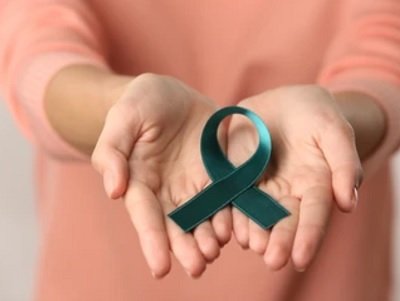Experts at ASSOCHAM conference stress to create more awareness on cervical cancer
January 28, 2022 | Friday | News
Discussions were held on preventive strategies
Image credit: Shutterstock
ASSOCHAM recently organised a conference on 'Awareness and Prevention of Cervical Cancer' to honour and assist women who have either been diagnosed with it or are being treated for this health condition.
Dr Princess Nothemba (Nono) Simelela, Assistant Director-General and Special Advisor for Strategic Priorities, World Health Organization (WHO) stressed the need to be optimistic. She said, “We need to recognise global health complacency. We have tools to detect this cancer. We have to make sure these preventive tools reach everybody."
Dr Shalini Singh, Director, ICMR-National Institute of Cancer Prevention and Research, MoHFW, GOI, focussed on the need to spread awareness, which is lagging. She added, “Awareness and knowledge give us power and perception. It also gives us the self-confidence to think from different levels. Ideally, all women should be aware of cervical cancer."
Narendra Varde, MD - India & Neighbouring Markets, Roche Diagnostics India informed that one-fourth of cervical mortality comes from India. He further explained, "Cervical cancer is a common cause of death among women of reproductive age. India needs a robust public health policy for prevention through HPV screening and vaccination.”
Ravi Bhatnagar, Co-Chairperson, ASSOCHAM CSR Council, Director, External Affairs and Partnerships (SOA)–Reckitt, focussed on the need of creating more awareness, vaccination, and preventive measures to erudite cancer.
Dr S Shantha Kumari, President, The Federation of Obstetric and Gynaecological Societies of India FOGSI said that Pap smear screening examination should be made mandatory. She also stressed that the girls must be fully vaccinated with the HPV vaccine by the age of 15.
Dr Radhika Srinivasan, Professor, and Head of Department of Cytology & Gynec. Pathology, PGIMER, Chandigarh, and Secretary, Indian Academy of Cytologists gave a presentation titled ‘Cytology for Cervical Cancer Screening - Is It Relevant Today?’ and stated that cytology detects the disease rather than the infection and emphasised that all disciplines need to work together and create an efficient system for the present and the future.
Dr Abhishek Shankar, Associate Professor, Department of Radiation Oncology, AIIMS, Patna; Associate Editor, APJCP; Associate Editor, SAJC, Editor in Chief, APJCC; Founder Secretary, ISCO explained that India needs a ground-shot approach as well as a community-based approach. For this, we need to create a good strategy as it's going to be difficult to do so. Co testing of HPV DNA and Pap tests are recommended for women above 30 years and only Pap test is advised between 21-29 years women.
Mridu Gupta, CEO, Caped India stressed the need to create strategies and conversations around it regularly.
Dr Rajesh Kesari, Founder, and Director, Total Care Control, Delhi-NCR, who moderated the session, highlighted that cervical cancer that affects the female gender is an infection due to human papillomavirus (HPV).
Priyanka Chaturvedi, Member of Parliament was the guest of honour at the conference.









